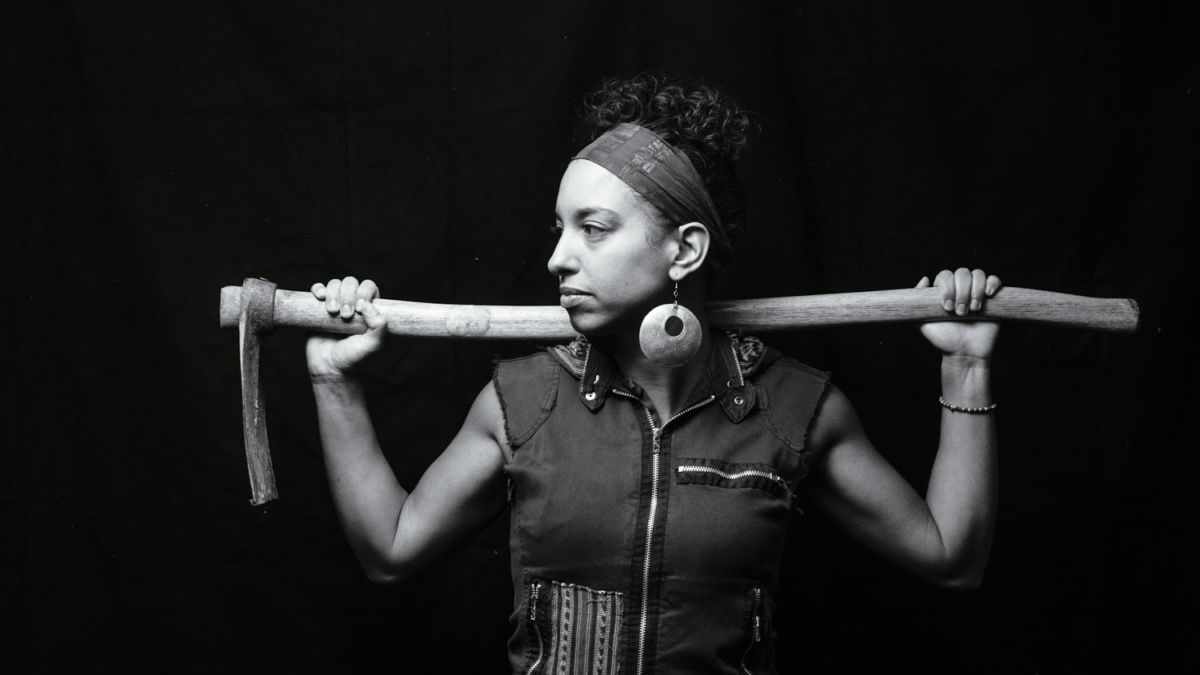
In my late teens it was learning the connections between agribusiness, the military industrial complex, and pharma, to food access disparities around the world, poverty, and disease, and about food activists like Francis Moore Lappe and Susan George that lit a fire in my soul and started me down a path that took me to one of the first organic farms in Vermont and eventually to the Lakota Reservation in South Dakota. There, my husband was working on an editorial piece for a food activism magazine (Seeds) about tribal members, led by Tom Cook (of Mokawk descent, married to a Lakota woman, and brother of midwife Katsi Cook), who were reclaiming use of their land which had been leased to white ranchers, and beginning to grow their own vegetables and other healthy foods almost impossible to get on the reservation. Food activism is in part also what brought me to herbal medicine and midwifery as paths to reclaim traditional practices that are gentler on the earth, free us from depending on agribusiness and pharma, and put the power back in our hands while connecting us to our roots.
My guest today also got a fire in her soul that has shaped her work early on in her life, and helped her to become the remarkable food activist she is today.
Leah Penniman is a Black Kreyol farmer, author, mother, and food justice activist who has been tending the soil and organizing for an anti-racist food system for over 20 years. She currently serves as founding co-executive director of Soul Fire Farm in Grafton, New York, a people-of-color led project that works toward food and land justice. Leah’s work – and Soul Fire Farm – have been recognized by the Soros Racial Justice Fellowship, the Fulbright Program, the NYS Health Emerging Innovator Awards, and the Andrew Goodman Foundation, among others. In 2019, she was awarded a James Beard Foundation Leadership Award for facilitating food sovereignty programs. She is also the author of Farming While Black: Soul Fire Farm’s Practical Guide to Liberation on the Land.
Leah has been tending the soil and organizing for an anti-racist food system for over 20 years and her story and her passion are both inspiring and motivating. I hope you will find them equally so for you.
In this episode, we discuss:
- What got her involved in farming and food activism at the age of 16
- Her experience living in a food desert and being on WIC postpartum
- Why she uses the term ‘food apartheid’ rather than ‘food desert’
- How the racist structures of our nation has brought us to a place today where 2% of land-owning American farmers are Black and 98% is white-owned
- One's zip code being the #1 indication of life expectancy – and how this is leading to the premature death of black people at an alarming rate
- Why it’s so important for BIPOC to reclaim their connection to the land and to ancestral farming practices
- Trauma many BIPOC have associated with the history of farming, slavery, and abuse in this country
- How to reengage with the land, reclaim agency over our food system, and connect to the people who worked the land before you
- How black farmers are changing the food system by using survival strategies and practices inherited from ancestors
- What inspired Leah to write Farming While Black, a book designed to create sustainable, equitable, profitable, and dignified relationships with food historically disenfranchised communities eat, and the land it comes from.
- The Black-Indigenous Farmers Reparations Map
- What things we can all do today to be a part of the movement to end racism and injustice in the food system






